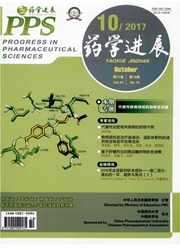

 中文摘要:
中文摘要:
动脉粥样硬化是人类健康的最大杀手之一。巨噬细胞是泡沫细胞形成的主要来源,其在粥样硬化斑块的形成过程中的作用已得到越来越多学者的关注。自噬,作为一种自我保护的细胞代谢途径,与多种疾病有着密切的关系,包括心脑血管疾病、恶性肿瘤、神经退行性疾病、内分泌和代谢性疾病、免疫性疾病等。已有大量研究表明,在动脉粥样硬化的发生发展过程中,巨噬细胞自噬能降低斑块巨噬细胞的胆固醇沉积,促进胆固醇流出,抑制NLRP3炎性小体的组装和激活,揭示了自噬诱导剂可能成为治疗动脉粥样硬化的潜在药物。重点阐述巨噬细胞自噬与动脉粥样硬化的关系,并对自噬相关药物在动脉粥样硬化治疗中的应用进行总结及展望。
 英文摘要:
英文摘要:
Atherosclerosis remains one of the biggest killers of people's health. As a major source of foam cell, the roles of macrophage in the formation of atherosclerotic plaque have drawn increased attention from researchers. As an important self-protective process, authophagy is extensively involved in various diseases, including cardio-cerebro-vaseular disease, malignant tumor, neurodegenerative disease, endocrine and metabolic disease, and immunologic disorder. R has been demonstrated that during the pathogenesis and progression of atherosclerosis, induction of autophagy in macrophage decreases cholesterol aggregation, promotes cholesterol efflux, and inhibits assembly and activation of NLRP3 inflammasome, revealing the possibility of developing autophagy inducer into anti-atherosclerotie drug. This review focused on the roles of macrophage autophagy in atherosclerosis as well as an outlook of autophagy-related drugs in atherosclerosis treatment.
 同期刊论文项目
同期刊论文项目
 同项目期刊论文
同项目期刊论文
 期刊信息
期刊信息
